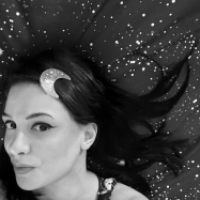Dr. Andrea Letamendi Goes Under the Mask
Pop culture’s favorite psychologist reveals how heroes and villains fight the same inner battles we do.
Mental health in comics was a topic that was previously locked inside the walls of Arkham Asylum. Society’s perception of mental health has morphed from the misconception of “madness” into a much deeper understanding of the undercover struggles faced by so many. With more calls for mental health awareness that have sparked anti-stigma and anti-bullying movements, comic characters have been viewed as much more relatable beneath their superhuman powers. Heroes are no longer assumed to just resolve everything with a swish of their cloaks. Villains are no longer defined as pure evil. Psyches that were previously viewed in black and white are finally being colored in.
Psychologist Dr. Andrea Letamendi, the brains behind Under the Mask, has spoken in panels at San Diego Comic Con, Wondercon, Nerd Nite and Geek Week and worked with Project UROK to raise awareness about mental health through a pop culture lens, not to mention has the most awesome Twitter handle—ArkhamAsylumDoc. Under the Mask gets into the heads of everyone from Batman to Darth Vader to shine a light saber on the invisible challenges faced by these supposedly invincible characters. Her weekly podcast The Arkham Sessions is a psychological analysis of Batman: The Animated Series that beats any textbook.
I reached out to Dr. Letamendi with a particular interest in how comics are promoting the de-stigmatization of issues that were previously taboo. Here are the (super)powerful things she had to say about Batgirl, bullies and banishing mental health myths.
Den of Geek: Which superheroes do you feel are most relatable to audiences as our society moves towards de-stigmatizing mental illness?
Dr. Andrea Letamendi: I have found that superheroes dealing with histories of hardship, adversity and traumatic experiences related to their identity are particularly relatable and can offer lessons in raising awareness around persons living with mental illness. For example, superheroes often battle an internal villain as they integrate different aspects of their identity (Who am I? What’s wrong with me? Why am I different?). Inner turmoil has them questioning their own worth, their ability to pursue their mission, and, ultimately, their humanity. Those of us dealing with mental health struggles such as depression, anxiety, bipolar disorder, PTSD and others can identify with this type of tumultuous journey. Think of when Rogue of the X-Men struggles to accept her powers, when Tony Stark turns to alcohol to drown his anxiety, when Bruce Banner confesses a suicide attempt, or when Batgirl is psychologically paralyzed by her traumatic memories. We connect with and personalize their stories. We find someone to identify with. When we do, that character’s experience makes us better able to understand our own hardships and self-doubts.
Is there are particular mental illness that has recently had the stigma level go down because of a certain superhero exhibiting symptoms?
It’s tough to “measure” or ascertain the level of stigma associated with mental health illness—but the inclusion and acceptance of characters with various aspects of neurological, developmental and emotional disorders is on the rise. These characters can be seen more prominently in some comic books and superhero films, television and streaming. Jessica Jones demonstrates aspects of post-traumatic recovery and raises awareness of relational abuse and trauma. Groot from Guardians of the Galaxy is initially seen as being unintelligent and limited in his social functioning, but is eventually understood as quite emotionally complex. Rocket is emotionally dysregulated and compensates with anger and violence. Characters in films such as Guardians, DC Comics’ Suicide Squad and Marvel’s Civil War show emotional, neurological, developmental and communication deficits that are not expected to be resolved or “cured” at the end of their story but do not make them ineffective as heroes. These characters learn how to supplement and strengthen their abilities in conjunction with acknowledging their deficits in order to defend, protect and form meaningful bonds with one another. This skill is referred to as adaptation.
Are there any comics you feel show an accurate depiction of bullying due to mental illness? It can be bullying towards a superhero or misunderstood supervillain.
DC’s upcoming comic Shade, The Changing Girl revolves around a young female protagonist who deals with issues of mental health (called “madness” in the comic) and bullying. Madness is dealt with head-on as a point of conflict and fear, but also as a source of power and beauty.
Want an in-depth analysis of the Dark Knight and his nemeses? Listen to The Arkham Sessions right here.
